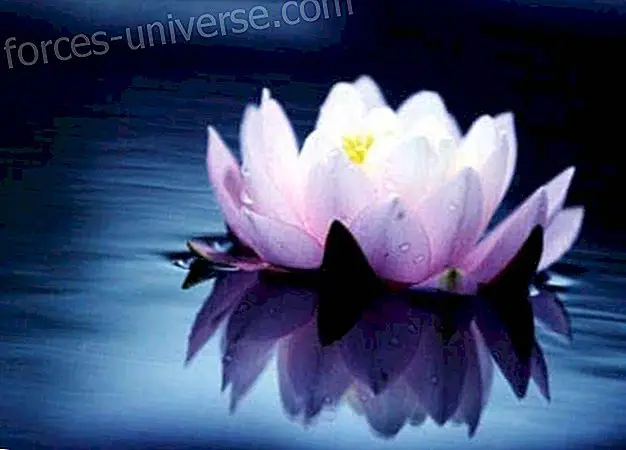Interview with Laura Gutman: “Let's stop blaming work. What complicates attachment is our difficulty in connecting with the emotions and needs of the baby. ”
- 2015
 Exiled in France, after the 1976 military coup, with only 18 years, Laura Gutman discovered her vocation as a family psychotherapist. She trained at the University of Paris 8, in Clinical Synopedagogy Applied to Educational Sciences, while becoming a female activist in the early hours, interested in the vindication of women in patriarchal society. But it was the development within the universe of motherhood that gradually became the focus of his research. Today, from the Crianza Center - the institution that he founded and directs in Buenos Aires - he speaks of listening to our own intuition, returning to the origin to know who we are and thus being responsible for what we generate.
Exiled in France, after the 1976 military coup, with only 18 years, Laura Gutman discovered her vocation as a family psychotherapist. She trained at the University of Paris 8, in Clinical Synopedagogy Applied to Educational Sciences, while becoming a female activist in the early hours, interested in the vindication of women in patriarchal society. But it was the development within the universe of motherhood that gradually became the focus of his research. Today, from the Crianza Center - the institution that he founded and directs in Buenos Aires - he speaks of listening to our own intuition, returning to the origin to know who we are and thus being responsible for what we generate.
Become a true guru of contemporary Argentine mothers, the interviewee follows the premises of her mentors, the French psychoanalyst Françoise Dolto and the obstetrician Michel Odent, pioneer in natural and aquatic birth issues. But, beyond the academic, what turns on in women 2.0 is the concept that is repeated in each of his books that what the baby receives is just born is what will mark his future. He talks about the importance of deciphering the factory seal that we all bring and taking advantage of the moment of motherhood to capitalize on that learning. Revolutionary or not, Gutman's proposal to review our emotional biography and ask ourselves what we have to offer our children enters homes because it puts into words the obvious contradiction between the place that women have in today's society and their most primitive obligation, that need to protect the young.
What analysis do you make of the success you have among women? What did you bring to this new generation of mothers?
My first books, especially Motherhood and the encounter with the shadow itself (Del Nuevo Extremo, 2008) and The family was born with the first child (Del Nuevo Extremo, 2011) lent words to feelings and internal feminine experiences that were not usually mentioned . These are books with which women identify and help us generate questions of another kind: “What do I have to do, my story, the part I don't know about myself, with what now hurts my motherhood? What is the relationship between that difficulty that I have to be a mother with what has happened to me throughout my life?
Socially, a current woman is required to divide her life between her professional growth, her beauty and her motherhood. Is the formula of happiness as they sell it or was the life of our mothers better?
Before, it was no better or worse than now. It was different. What happens is that women displayed their identity indoors and now we deploy it outside. But, from the child's experience, things are the same as always: subject to helplessness. Today, women feel visible and recognized if we work. Instead we feel worse if we are locked in parenting. In any case, this is not solved either by staying at home or going to work, but by contacting our true difficulties, which are emotional.
But this demanding division of roles does not help.
I don't think the problem is the multiplication of roles. The fundamental thing is the pain that affective contact produces, the inability to bond from the knowledge of who we are. That is why obstacles arise when understanding, accepting and operating in favor of children, without calling into question what is happening to them, but simply responding to their demands. People can work, have romantic relationships, play sports, travel, deal with problems of our ascendant family and, in those cases, we don't say we have too many roles to fulfill. However, when it comes to raising young children, there is a sense of being fed up with having to take on multiple tasks. What is in the center is a problem of emotional disability, as a result of homelessness in our early childhood: "I was not given this when I was little and now I have trouble delivering it."
In all your books you talk about attachment as a fundamental nucleus in the mother's relationship with the baby. How can most women who must return to work a few months after having their children practice it?
Let's stop blaming work. What complicates attachment is our difficulty in connecting with the emotions and needs of the baby. We can go to work ten hours. The important thing is that we look at what we tolerate when we return home. Do we take off our clothes and get into bed with the child attached to our body? Do we agree to breastfeed without schedule? Or, on the contrary, when we get home, do we give priority to other demands of the external world? If the child waits for his mother during work hours and when the mother returns home, he effectively finds her, that child will know how to nourish himself in order to tolerate the absence the next day. On the other hand, if a child waits for his mother, but when he returns, he does not merge with his son, then the child will know that he is alone. I insist: women blame work, but deep down we use it as an excuse to evade our abilities or disabilities to love.

Then the solution of the modern woman, not to feel guilty, is full time dedication to the return.
Enough talking about guilt. Let's start talking about responsibilities. If we are adult women and have given birth to a child, we have two options: take care or not take care. If we take care, we will not be aware of our guilt, but of the needs of the baby who arrived in the world absolutely dependent on maternal care. He cannot solve anything by himself and depends on his mother. Now, if we decide not to take charge, then, let us continue to lament.
But what is your most concrete advice?
When you get home, after work, pick up your baby in your arms and put it to your body. Take it with you everywhere and allow free access to your breasts. Then, the next day the child can wait patiently for a new day of absence. Precisely, because he will trust that he will return and nourish him again and again.
And what about the woman who, for some reason, cannot breastfeed?
Before determining that a mother cannot breastfeed, we have to know what happened. Do you go through a battered birth? Did you spend a lot of time between the birth of the baby and the first breastfeeding? Do you have a hostile environment regarding breastfeeding? Have close friends dismissed your maternal abilities and scared you? Is it childish? We must review each particular case and see what desires, fears, desires or prejudices each mother has, before assessing that she cannot breastfeed. If that woman is flooded by other family or emotional difficulties and that is what has prevented her from breastfeeding, it will be those same difficulties that will prevent her from dedicating herself with attachment and total surrender to her baby.
From the media they invade us with advice of all kinds on what to do and what not to do when we are mothers.
Nor would he blame the media. If we operate according to rules or fashions imposed from television or social opinion, it is because in some way it accommodates us and exempts us from our own responsibility. We assume a childish attitude giving importance to opinions about the upbringing that anyone issues. Instead, we are not asking right and left who to fall in love with or where to go on vacation.
And why do we value other people's opinions when it comes to our children?
I think that the infantilization of women begins at the beginning of pregnancy. As soon as we have the positive result, we run to a medical consultation to be told what is right and what is wrong.
We arrive at childbirth with a level of ignorance about our feminine abilities and submission to medical practices that make us mere spectators. Then we live the delivery systematized by hospital routines that transform us into objects. By that time we have already lost our internal references and our internal security. Then, with the baby present, feeling little less than an insect, we believe ourselves devoid of any knowledge. And we ask whoever it is. Sometimes it turns out that we are managers of a multinational, or liberal and autonomous professionals, or intellectuals or politicians, that is, women accustomed to making decisions. However, on a personal level, we believe that we do not know how to resolve a cold or a sleepless night. That insecurity is the breeding ground of all the advice for mothers. We need to review from what moment we delegate in supposed knowledge outside our own future.
What you say is strong, but very real. You also have a vision about life as a couple. What do you think the current man wants to find in a woman and what do we look for?
We must modify the point of view with which we go out to find a partner. It doesn't matter what I want to find but what I have to give to the other. We all want to find the same thing: love. The problem is that we don't pay attention to what quality of love we have to give. And this disability is the same in men and women.
What is the most obvious myth you see in the loving way of relating today?
Women have a tendency to fall in love with our own fantasies. And of course, just that man does not work as we expected, our disappointment is huge. Men, on the other hand, are not so fanciful, at least they do not yearn to "change us." What we do tend to be the same is in infantilism, in a deep ignorance of ourselves: we are more hungry to be loved than capable of loving. That is why couples break apart in the presence of their children. At that time - in front of the crisis due to the immense emotional demand of the children - the lack of generosity is visible to give priority to the needs of another.
How do you build the role of women in this new society that wants to run slowly from the patriarchal structure?
There is no change possible if we do not check the level of helplessness we suffered when we were children. Then, it is imperative to record what levels of emotional selfishness we handle, or what level of war or blindness or fear we suffer. Only then can we think if we are willing to change in favor of protection for our children, couples, friends, brothers or whoever touches us to bond. The patriarchal structure is a structure of domination. To dominate warriors are required. Abuse in early childhood is the fastest and most effective way to generate warriors. If we don't like that and long for a different society, we have to do something.
What do we talk about when we talk about maternal speech?
My last book, The Power of Maternal Speech (Del Nuevo Extremo, 2011), describes the distance between what we have lived as children and what was named by our mother. For example, if our mother has complained throughout our childhood about the sacrifices she had to make to raise us, we are going to remember that sacrifice, but we may not remember the level of unmet needs we had to have not been named, Consciousness cannot organize them. And that generates a conflict zone.
You talk about emotional helplessness. What is it about and why is it important to identify it?
My books mainly describe the helplessness in early childhood and the ravages on all the men and women we become adults, carrying great emotional immaturity. It is essential to look at that clearly to avoid subsequent misunderstandings that bring disagreements and frustrations.
You worked together with the first feminists in France. What did you dream of at that time and what transformations do you expect for the future?
I guess nothing very different from what I dream now: greater emotional maturity in adults, take care of what we generate, be aware of our limitations, work on ourselves before pretending that others change.
Source: https://cambiemoslaeducacion.wordpress.com
Source: PAULA
Interview with Laura Gutman: “Let's stop blaming work. What complicates attachment is our difficulty in connecting with the emotions and needs of the baby. ”






